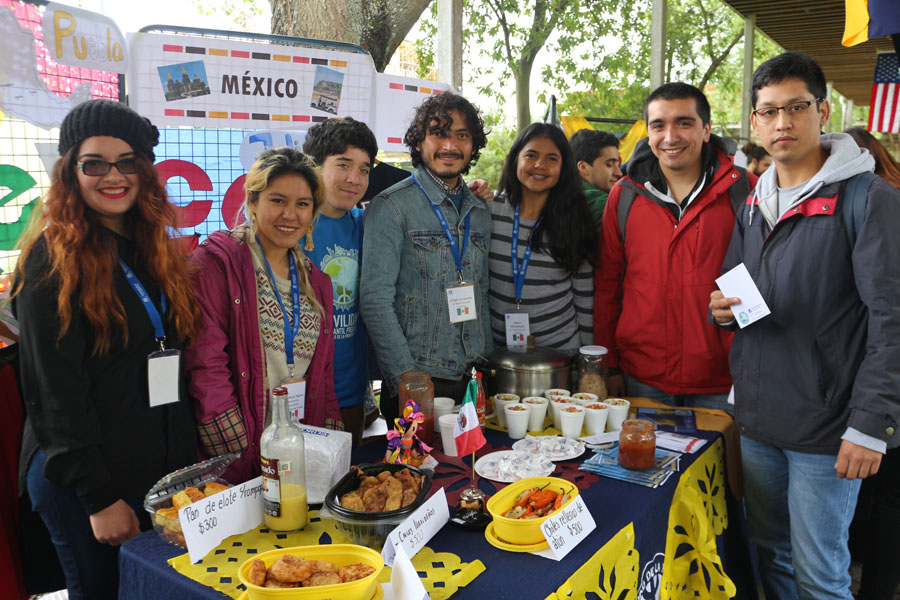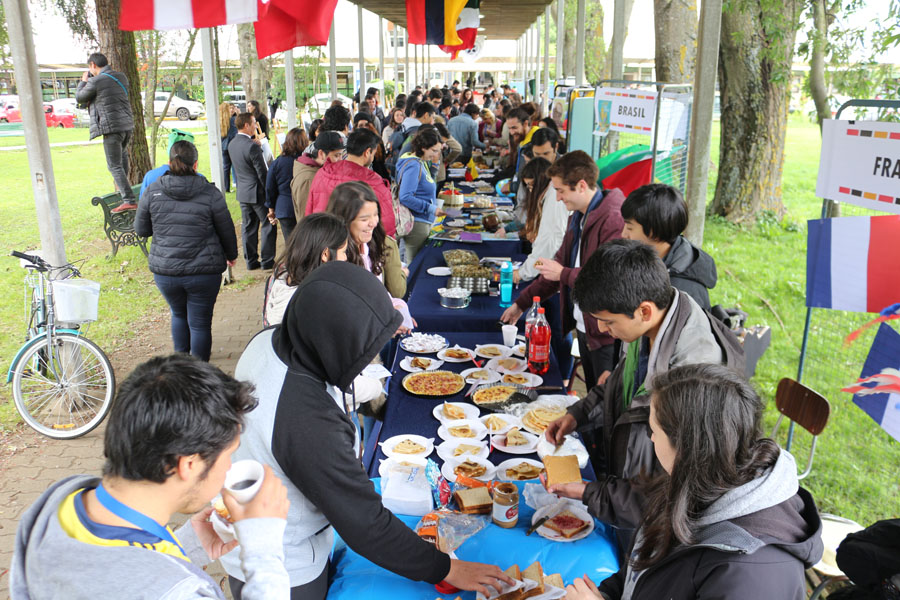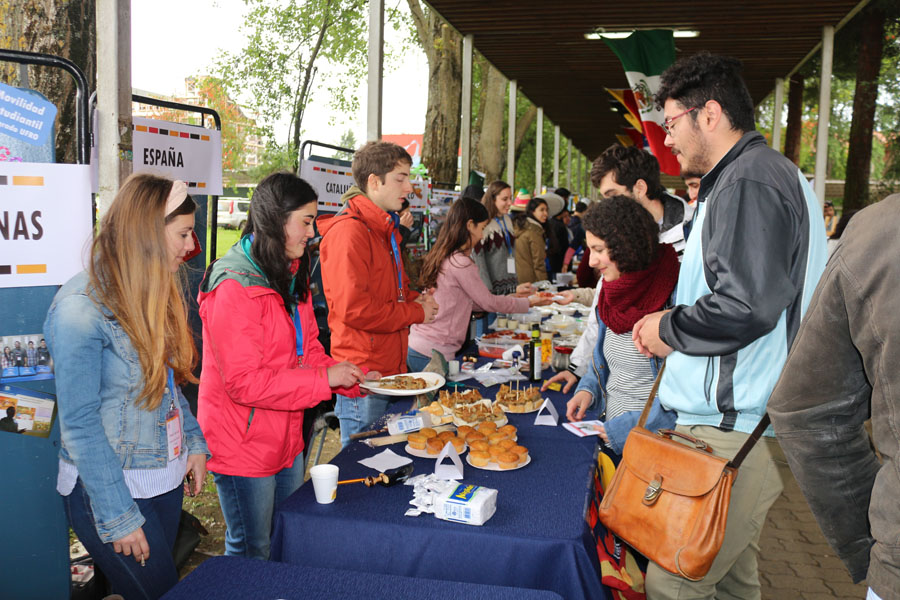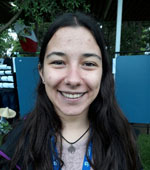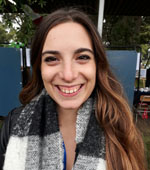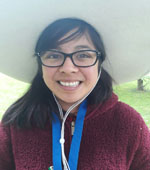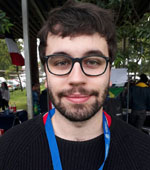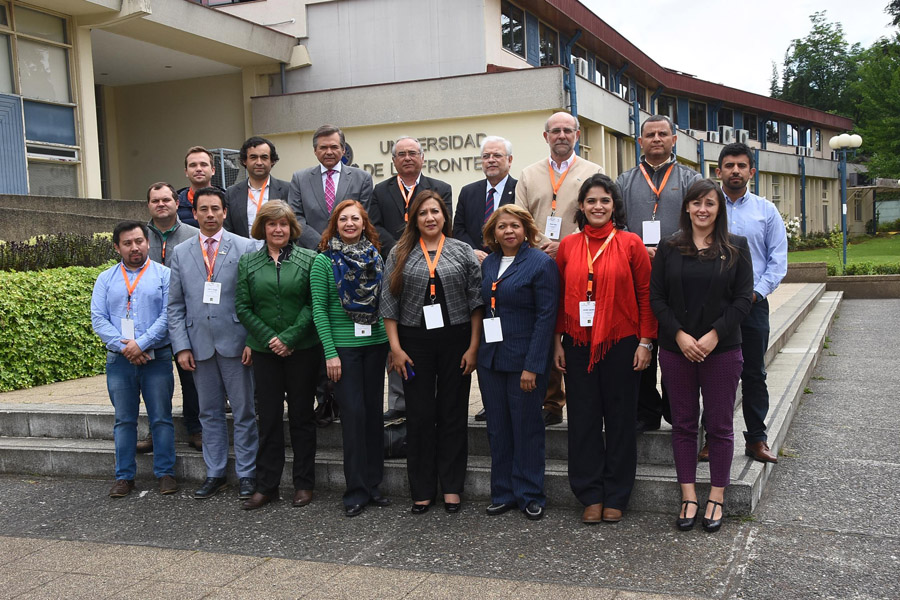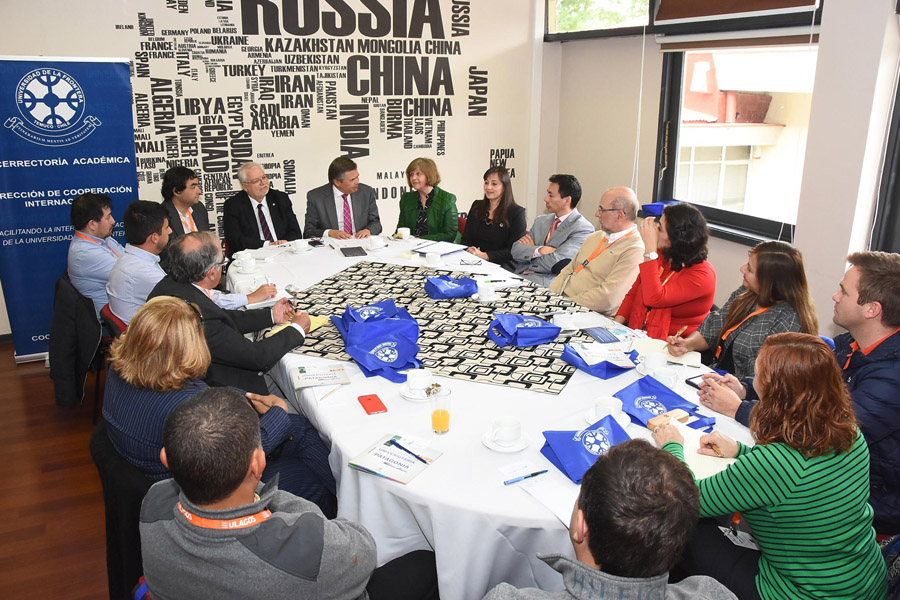|
The German agency AQAS (Agency for Quality Assurance) accredited the quality of two doctoral programs of BIOREN-UFRO at our University. This acknowledgment was the main challenge of the Performance Agreement of Internationalization of doctoral programs. Now, the challenge is completed successfully. |
“Accredited without conditions”. This is the highest acknowledgement of quality one can get at the international level. It means that there are no impediments at all to certify the quality of an academic program. And this is exactly what the doctoral programs in Natural Resource Sciences and Science with specialization in Applied Cellular and Molecular Biology of the Universidad de La Frontera achieved. Both programs went through the accreditation process during 2017, within the framework of the Performance Agreement of Internationalization, which this institution was developing since 2012 and whose main challenge was to obtain this quality assurance with European standards. Now, it has become reality, because the German agency AQAS decided to accredit “without conditions” – or observations – the quality of both doctoral programs. “We achieved this accreditation with European standards and very stringent protocols. This was the last aim left of the Performance Agreement. Now, the significant impact will show in the international projection of the University, the objective prove of the quality of the programs and the possibility to establish the bases for new partnerships and the development of postgraduate studies at the international level”, said the director of Institutional Analysis and Development, Ricardo Herrera. QUALITY ASSURANCE Compared to the national process, the international accreditation includes a visit of assessment experts who observe the declared conditions in the self-assessment report on site. “Five experts come to visit and stay for three days to observe everything. This is very important in terms of the verification on site of the programs´ quality”, Ricardo Herrera specified. He also added that the visiting experts were pleasantly surprised by the quality of the academic bodies, the impact of scientific production and above all, by the level of scientific equipment the University has and the way the access to it for the different research groups is resolved by the BIOREN platform. EQUIVALENCE WITH EUROPE For the director of the doctoral program in Natural Resource Sciences, Dr. Francisco Matus, the complete recognition without conditions is very important. “We are now accredited in the best way possible, without any objections by one of the most important accrediting agencies of Europe. This is a giant step for us, because it opens doors to that continent, since they can apply for our programs, because now they have the same standards as in Europe.” On the other hand, Dr. Matus states that – although the UFRO doctoral programs have a broad scientific network with worldwide centers of excellence – this achievement will permit to strengthen the international promotion of the doctoral programs through the same agency. He emphasized the strictness of the process of the visit and commented that one of the assessors was a doctoral student who can assess from the user´s point of view. Regarding the doctoral program, the director pointed out that they had put a lot of emphasis on the quality of the theses, the scientific indexes or impact factors, the academic staff and the empowerment of professors to guide the theses. “In this point, we have important restrictions. For example, our academic staff can only guide theses if they have had at least eight publications in five years or if they have conducted FONDECYT projects. This is just one example of how serious we take the postgraduate studies at this university”, Dr. Matus concluded. CONTINUOUS WORK This recognition is not a coincidence, but the result of permanent and hard work. This is how the director of the doctoral program in Science with specialization in Applied Cellular and Molecular Biology, Dr. Luis Salazar, describes it. “This is the culmination of extensive work that started in 2012, when we have been awarded a Performance Agreement of Internationalization. In other words, we have been permanently working on self-assessment during the last five years, what permitted us to significantly improve our indicators.” This Program increased its scientific productivity from 160 publications between 2008 and 2012 to more than 600 between 2013 and 2017, only by the academic team with 21 members. The last 40 graduates also contributed with 186 ISI publications from 2012 to 2017. At the same time, he pointed out that the international visitors evaluated the quality of the academic body, infrastructure and equipment. According to Dr. Salazar, an essential fact was also the student quality and the number of outside scholarships. In addition to that, the positive opinion of the students of the program and the increase in foreign students, with 28% of doctoral students from different Latin American countries, also played an important role.
Written by: Direction of Communications
|
|
The second version of the Seminar about the Internationalization of Higher Education, named “Regional Platforms and National Policies in Latin America”, took place in the O´Higgins room of the Ministry of External Affairs, on November 24th. The activity was organized by the Council of Rectors of the Chilean Universities (CRUCH), through their General Secretariat and the Advisory Committee of Internationalization, together with the Energy, Science, Technology and Innovation Division (DECYTI) of the Ministry of Foreign Affairs of Chile (MINREL). The event was sponsored by the University of Chile and the Pontifical Catholic University of Chile, via an Internationalization Agreement of the Chilean Ministry of Education (MINEDUC). |
The objective was to continue the dialogue that started in the first version of the Seminar about the Internationalization of Higher Education in October 2016, and to respond the fundamental questions about the internationalization of higher education in this region. This meeting brought authorities together that are in charge of issues related to internationalization, scholars, students and researchers of Chilean and international higher education institutions.
 Source: CRUCH Communications Unit Source: CRUCH Communications Unit |
|
This activity was organized by the Student Mobility Office of the Vice-rectorate of Academic Affairs with cultural and food presentations, contests and information about foreign universities. |
The first “International Fair” 2017 was a valuable space of cultural exchange, where exchange students shared their different experiences and cultures with our university community. This activity was organized by the Student Mobility Office of the Vice-rectorate of Academic Affairs, where national students that have made a student exchange at foreign universities and foreign exchange students at the Universidad de La Frontera participated. The event included cultural and food presentations, contests and information about foreign universities. The main actors of this event came from Mexico, Colombia, Brazil, Chile, the USA, Spain, France, Belgium, Portugal and Italy. The “International Fair” was a great occasion for UFRO students who have participated in an exchange program, to share with their fellow students and tell them about the advantages and the things you might need to keep in mind if you want to do a student exchange. During the first semester of 2017, 31 undergraduate students of our six faculties went to foreign universities and 68 students from ten different countries came to the Universidad de La Frontera. “We are happy about the good reception of this event and that the UFRO students used the opportunity to get to know the experiences of the students who participated in our mobility programs and the international students at the UFRO. We think that events like this motivate our students to make their own cultural exchange experiences”, said Antonia Espinoza, who is in charge of the Student Mobility Unit.
Written by: Direction of Communications
|
|
The diplomat met with young students to talk about the current reality of the Palestinian people. |
Within the visit of the Palestinian ambassador in Temuco, the diplomat, Imad Nabil Jadda, met with young students of Palestinian origin at the Direction of Outreach and Community Engagement of the Universidad de La Frontera. In this opportunity, the ambassador offered a talk about the current reality of the Palestinian people within the armed social conflict that takes place in the country and he encouraged the new generations to join the global defense of Palestinian rights and to work on peace in that territory. In this respect, the director of the Outreach and Community Engagement Office, Dr. Nelson Araneda, performed a protocol greeting. “This is one of the most important visitors we received this year, offering a space to meet and who we received particularly well, as it is our spirit of pluralism and our policy of open doors for the social world”, he said. Nabil Jadda was invited by the Arab Center of Temuco. This invitation included a series of activities, beginning with a Mass in the morning of Monday, 27th of November, officiated by the bishop of Temuco, as part of the Memorial of the “International Day of Solidarity with the Palestinian People”, introduced by the UN in 1977.
Written by: Direction of Outreach and Community Engagement
|
|
IGLU is a program for authorities, executives and academic staff of higher education institutions, to perfect their skills in university management and leadership and, at the same time, to generate instances of mutual cooperation. |
High Authorities and scholars of different Latin American Universities from Costa Rica, the Dominican Republic, Mexico, Brazil and Argentina visited the Universidad de La Frontera within the Institute for University Management and Leadership (IGLU) Program, which is organized by the Inter-American Organization for Higher Education (IOHE). On this occasion, the Los Lagos University was the headquarter and host of a series of management and leadership activities that have been developed within the IGLU Program, which includes classes and on site experiences at institutions with good practice. The IGLU Program is one of four development programs (CAMPUS, COLAM, EMULIES) the IOHE offers. UNIVERSITY MANAGEMENT AND LEADERSHIP The IGLU Program is offered by the Institute for University Management and Leadership, which is distributed in Regional Centers of the Americas. One of those Centers is at the Los Lagos University, which chose the UFRO in order to show the work of a public, regional and state university with good practice and auspicious projections. In this context, the rector, Sergio Bravo, pointed out that “the Los Lagos University thought of this institution as an example for an important delegation with people from universities who have come to get to know the implementation of different programs, having in mind that we work corresponding to the Chilean education policies, which can be quite different compared to other countries.” According to Dr. Julio Crespo, the director of International Relations of the Los Lagos University, the visit at the UFRO meets the objective of observing the work of universities, with regard to leadership and academic development. “This is why university executives and managers participate in this program: to obtain new experiences, make synergies with universities, and to strengthen their own institutions through an innovation project.” Some of them have similar cultures, we have cooperation agreements with some of them and with others not. This is why the rector, Sergio Bravo, said that there is no doubt that this encounter supports our work of internationalization, and the experiences we presented address the management of research, the creation and development of the scientific nuclei, the fields of technology transfer and innovation, and the connection with graduates. UFRO EXPERIENCE At present, the Osorno Campus and the International Affairs Office of the Los Lagos University have been receiving participants since 2016 and are the headquarter in the south of Chile this year. Against this background, the Universidad de La Frontera enabled them to get to know other university realities and educational contexts. Dr. Leal added that the main interest was to get to know the work in the areas of innovation and technology transfer, monitoring of graduates and scientific and technology nuclei. “There is no doubt that this experience will provide new tools that can be used in each of the institutions.”
Written by: Dirección de Comunicaciones
|







